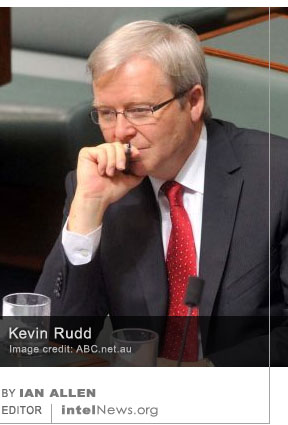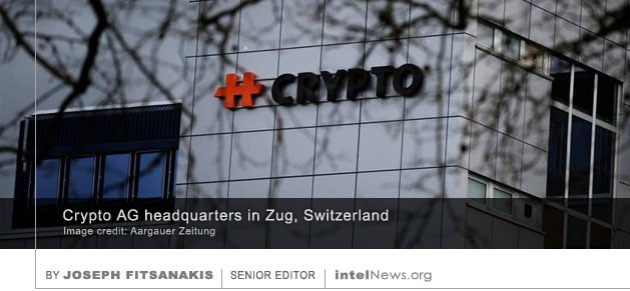Swiss intelligence chief to step down following dispute over Crypto AG spy scandal
May 13, 2021 2 Comments

THE DIRECTOR OF SWITZERLAND’S spy service will step down once his mandate ends in August, allegedly over a dispute with the country’s governing council about the Crypto AG affair, which shook Swiss politics last year. Jean-Philippe Gaudin headed Switzerland’s Military Intelligence Service from 2008 to 2015. He then served as a defense attaché at the Swiss embassy in Paris, France, before being appointed by the then-Defense Minister, Guy Parmelin as director of the Federal Intelligence Service (FIS). Founded in 2010, the FIS performs both domestic and external intelligence functions in the Alpine state.
But, according to reports in the Swiss media, Gaudin is not expected to continue in his post once his mandate ends, on August 31. The reason seems to be tensions within the Swiss government over the so-called Crypto AG affair. The scandal centers on the world’s leading manufacturer of cryptologic equipment during the Cold War, Crypto AG, whose clients included over 120 governments around the world. In February of last year, The Washington Post and the German public broadcaster ZDF confirmed reports that had been circulating since the early 1980s, that Crypto AG was a front for American intelligence. According to the revelations, the Central Intelligence Agency and West Germany’s Federal Intelligence Service secretly purchased the Swiss company in the 1950s and paid off most of its senior executives in order to buy their silence.
The secret deal, dubbed Operation RUBICON, allegedly allowed the US and West Germany to spy on the classified government communications of many of their adversaries —and even allies, including Austria, Italy, Spain, Greece, Jordan, Saudi Arabia and the United Arab Emirates. The revelation about the secret deal shocked Swiss public opinion and embarrassed the government of a nation that bases its national identity and international reputation on the concept of neutrality.
Earlier this year, a parliamentary report into the Crypto AG affair concluded that Gaudin had essentially mishandled the case and had waited too long to inform the nation’s leadership about it. Gaudin’s behavior resulted in tension in his relationship with the Swiss Federal Council —a seven-member executive body that forms the federal government and serves as the collective decision-making body of the Swiss Confederation. According to reports, the spy chief’s relationship with Switzerland’s Defense Minister, Viola Amherd, is beyond repair, and the minister has been pushing for his resignation for several months.
In a statement released on Wednesday, the Swiss government gave no reason for Gaudin’s pending career change, saying only that the spy chief would move on to “new challenges” in the private sector. He will reportedly be replaced by Juerg Buehler, who will serve as interim director of the FIS until further notice. Neither the FIS nor Gaudin have made public comments about this sudden development.
► Author: Joseph Fitsanakis | Date: 13 May 2021 | Permalink
 •
•  Switzerland is reeling from the shock caused by revelations last week that Crypto AG, the world’s leading manufacturer or cryptologic equipment during the Cold War, whose clients included over 120 governments around the world, was a front company owned by the United States Central Intelligence Agency.
Switzerland is reeling from the shock caused by revelations last week that Crypto AG, the world’s leading manufacturer or cryptologic equipment during the Cold War, whose clients included over 120 governments around the world, was a front company owned by the United States Central Intelligence Agency. In 2007 I wrote in my “
In 2007 I wrote in my “





